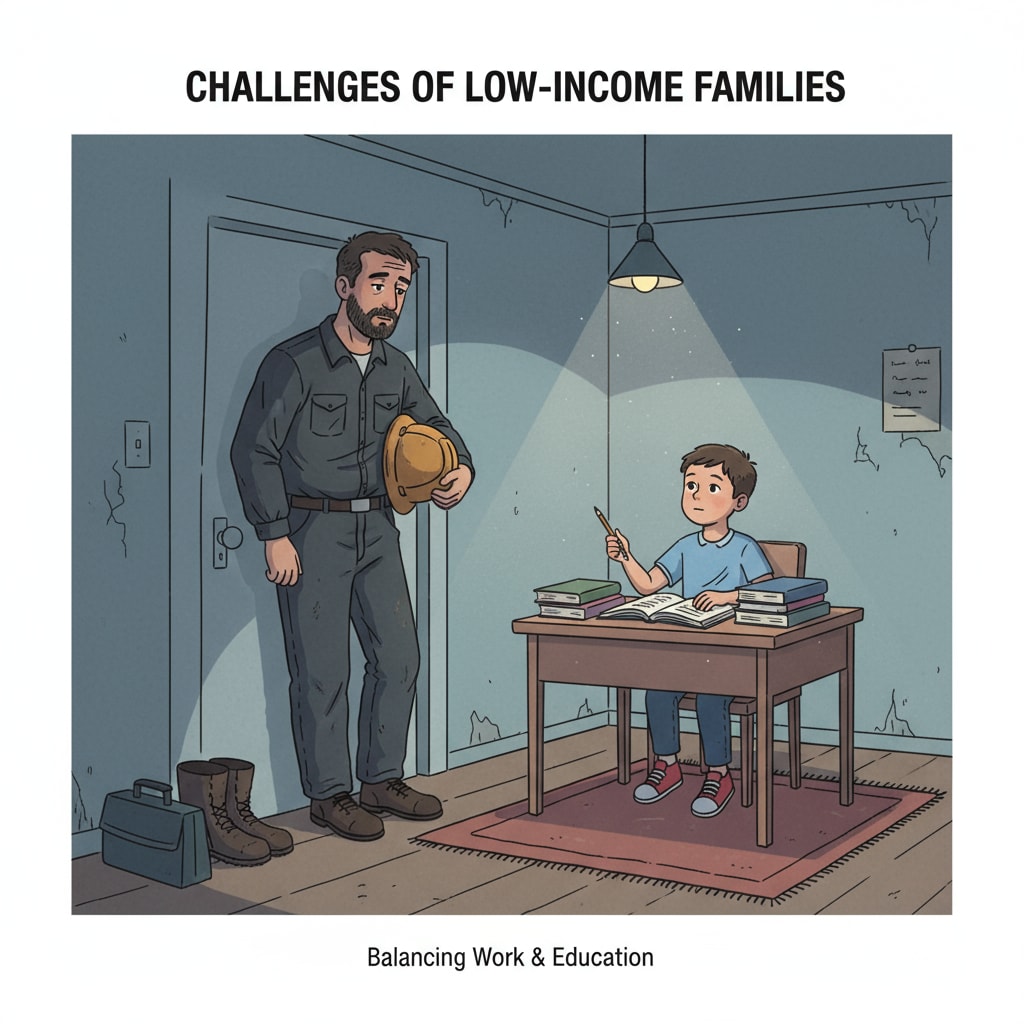Family education, parental involvement in low-income families play a crucial role in a child’s development. However, these parents often encounter numerous challenges. Let’s first take a look at a common scenario.

In many low-income households, parents struggle to balance work and family life, which directly impacts their ability to be actively involved in their children’s education.
The Struggles of Low-Income Parents
One of the primary challenges is financial constraints. Low-income parents often have to work long hours at multiple jobs just to make ends meet. As a result, they have limited time and energy to engage in their children’s educational activities. For example, they may not be able to attend parent-teacher meetings or help with homework regularly. According to The National Center for Education Statistics, parents with lower incomes are less likely to be involved in school-related activities compared to those with higher incomes.

Impact on Children’s Development
The lack of parental involvement in low-income families can have a significant impact on children’s development. Without sufficient parental guidance, children may struggle academically. They may also face social and emotional issues. For instance, they might have lower self-esteem and less motivation to learn. Research from the American Psychological Association has shown that children with involved parents tend to perform better in school and have better mental health.
Despite these challenges, there are ways to help low-income parents become more involved in their children’s education. Community support programs can play a vital role. These programs can provide resources such as free tutoring services, parenting workshops, and access to educational materials. By working together, we can bridge the gap and ensure that every child, regardless of their family’s income, has the support they need to succeed. Readability guidance: We’ve used short paragraphs to make the content more digestible. The lists help summarize key points. Transition words like “however”, “for example”, and “as a result” have been used to enhance the flow.


